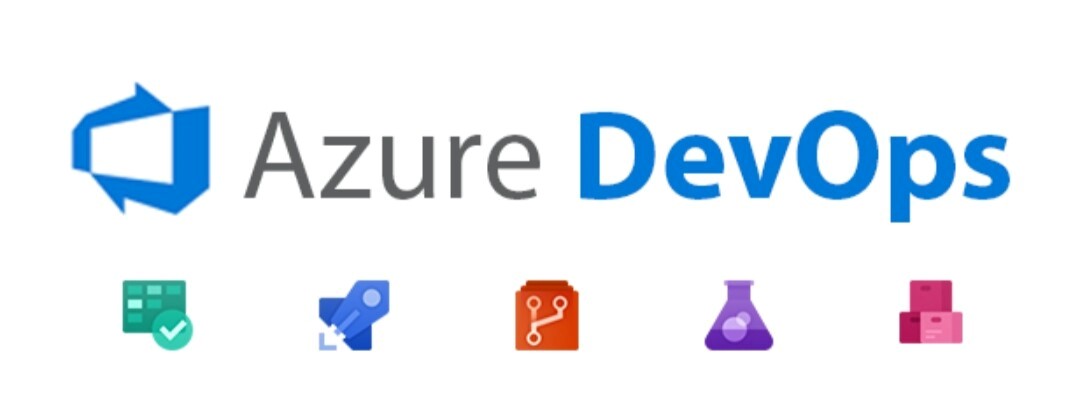
Introduction
Azure DevOps is a comprehensive suite of tools and services designed to support the entire software development lifecycle (SDLC). Developed by Microsoft, it offers cloud-based solutions that enable teams to plan, build, test, and deploy applications more efficiently. By integrating key DevOps practices like continuous integration (CI), continuous delivery (CD), and automated testing, Azure DevOps enhances collaboration, productivity, and the quality of software products. Furthermore, Azure DevOps Training opens doors to numerous career opportunities for aspiring professionals. With its flexibility and scalability, it caters to teams of all sizes and is compatible with various programming languages, frameworks, and platforms, making it a popular choice for modern software development.
What Tool Is Azure DevOps?
Azure DevOps is a suite of development tools provided by Microsoft to support the entire software development lifecycle (SDLC). It helps development teams plan, build, test, and deliver software applications efficiently. Azure DevOps includes a set of cloud-based services that enable continuous integration (CI) and continuous delivery (CD), enhancing collaboration and productivity.
The core components of Azure DevOps are:
- Azure Boards: A project management tool that helps teams track work with backlogs, boards, sprints, and Kanban workflows.
- Azure Repos: Provides Git repositories for source control, enabling teams to collaborate on code and manage versions.
- Azure Pipelines: A CI/CD service that automates build, testing, and deployment processes, ensuring code is continuously integrated and delivered to various environments.
- Azure Test Plans: A set of tools for manual and automated testing to ensure the quality of applications.
- Azure Artifacts: A package management system that enables teams to share and manage code dependencies.
Azure DevOps integrates with various tools, including third-party systems, and supports various programming languages and platforms. It’s widely used for DevOps practices, allowing teams to achieve faster and more reliable software delivery.
Why Is Azure DevOps Used?
Azure DevOps streamlines and enhances the software development lifecycle (SDLC), supporting DevOps practices like continuous integration (CI) and continuous delivery (CD). It helps development teams plan, build, test, and deploy applications with improved efficiency and collaboration.
Key reasons why Azure DevOps is used include:
- Collaboration: Azure DevOps facilitates team collaboration by providing tools for tracking work, managing code, and handling project management tasks like backlogs, Kanban boards, and sprints.
- Automation: With tools like Azure Pipelines, it automate repetitive tasks such as building, testing, and deploying code, leading to faster and more reliable software delivery. Consider getting the DevOps Certification to learn more about Azure DevOps.
- Source Control: Azure Repos offers version control for tracking and managing code changes, making collaboration easier and reducing the risk of conflicts.
- Integrated Testing: Azure Test Plans helps teams integrate manual and automated testing into the CI/CD pipeline, ensuring software quality.
- Scalability and Flexibility: It supports various languages, frameworks, and platforms, making it suitable for diverse development environments. Azure DevOps can scale as the team and project grow.
- Cloud-Native: Being cloud-based, it offers seamless integration with other Azure services, enhancing DevOps workflows in a cloud-native environment.
Azure DevOps is widely adopted for its ability to enhance software development efficiency, improve collaboration, and automate processes, driving higher-quality product delivery.
Top Benefits of Azure DevOps
Azure DevOps offers several key benefits that enhance software development, collaboration, and delivery. Some of the top benefits include:
- Enhanced Collaboration: Azure DevOps provides integrated tools like Azure Boards for project management, enabling seamless communication and collaboration among team members. It facilitates version control, task tracking, and real-time updates, ensuring everyone stays aligned on project goals.
- Continuous Integration and Continuous Delivery (CI/CD): Azure Pipelines automates the build, testing, and deployment processes, ensuring fast, reliable, and consistent delivery of code. This accelerates software delivery and reduces human errors.
- Scalability: Azure DevOps is cloud-based, offering scalability to handle growing project needs. It can support small teams to large enterprises, adjusting to various workloads and requirements with ease.
- Flexibility: It supports multiple languages, frameworks, and platforms, providing flexibility in how teams build, test, and deploy applications. Azure DevOps can integrate with other tools and services, offering a tailored solution for diverse development environments.
- Security and Compliance: Azure DevOps offers built-in security features such as role-based access control (RBAC) and secure pipelines, helping organizations maintain compliance and protect sensitive data.
- End-to-End Traceability: The platform ensures complete traceability from work items to code changes, builds, and deployments, improving transparency and accountability across the development process.
These benefits make Azure DevOps an essential tool for modern software development teams. Refer to the DevOps Online Course to know more.
Conclusion
To sum up, Azure DevOps is a powerful platform that enhances collaboration, automates workflows, and accelerates software delivery. By integrating project management, version control, CI/CD, and testing, it streamlines the development process, ensuring faster and more reliable product releases. Its scalability, flexibility, and strong security features make it an ideal solution for teams of all sizes, ultimately driving higher efficiency and better software quality.